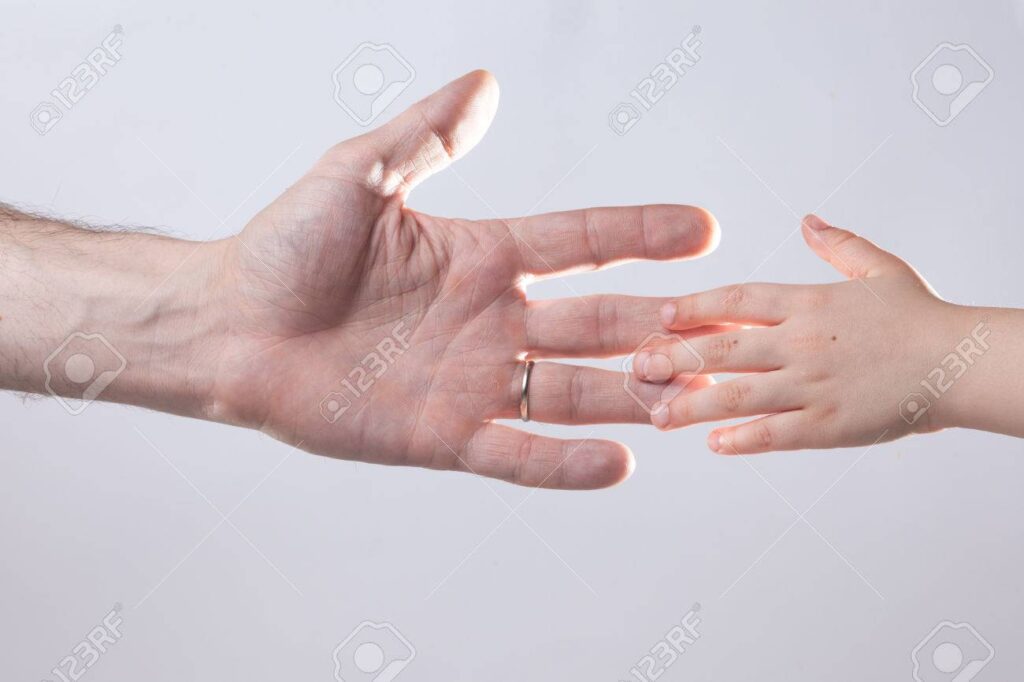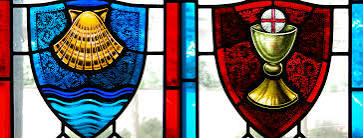Two conversations in recent weeks have stayed with me.
The first was with a parent, curious and pastoral in their enquiry. One of their children, unexpectedly, had received Holy Communion during a service without the parent knowing, and before the older sibling had done so. There was no anger, just a gentle, open question: how do we handle such things? What does it mean?
The other was with a Hindu friend exploring the possibility of converting to Christianity. As we discussed belief, belonging, and the nature of commitment, they said something that struck me deeply:
Monotheism is like monogamy. It’s choosing one, even though you could choose many.
The metaphor wasn’t just theological: it was cultural. They come from a society shaped by the traditions of arranged marriage, where ‘dating’ doesn’t carry the same social weight as it does in the West. Love, for them, often follows promise, not the other way round. It was also a metaphor born out of difference. Hinduism, after all, is not merely polytheistic in number but in relationality. It holds a world thick with deities, each reflecting a particular facet of the divine. To consider monotheism as monogamous was not a rejection of plurality but a fascination with the Christian claim: one God, one covenant, one beloved. Fidelity, not variety, as the heart of the divine-human relationship.
And here, of course, is where Christ steps into the conversation, not simply as a name for God, but as the one through whom we know this fidelity. The incarnation of God’s self-giving love. The one who calls, commits, and receives.
These two encounters, one quietly domestic, the other vividly cross-cultural, have refused to let go of each other in my imagination. They have drawn me again into pondering the complex choreography of the sacraments: of belonging and believing, of who comes to the table and when, and of how the Church holds open space for grace without making it cheap.
Back when I was serving in Sheffield, I remember a situation where I discovered a few children had been regularly receiving communion before they had been baptised. Their parents did not want them to be baptised until they could make the decision themselves. In trying to explain the theological dissonance of that moment, I reached for an analogy: baptism, I suggested, is like marriage, a public act of covenantal commitment. Holy Communion, then, is the consummation of that covenant; the intimate, embodied sign of a life now shared. To take communion before baptism is to jump ahead in the story. It is, I said, like sex before marriage: a moment of intimacy without the promise that gives it shape.
I know that analogy isn’t perfect (none ever are) but it helped me to name something important: sacraments are not isolated rites; they exist in relationship. They interpret each other. The Eucharist matters because baptism matters, and the sequence, while not legalistic, carries meaning: it tells a story.
This is why I find myself returning often to John Henry Newman’s observation:
Baptism may be the hand of the giver, and Faith the hand of the receiver.
John Henry Newman, ‘Tract 90: Remarks on Certain Passages in the Thirty-Nine Articles‘ (London: J.G. & F. Rivington, 1841) section 7.
The sacraments are not mechanical rituals. They are gestures of grace, relational acts of giving and receiving. Baptism is not simply a declaration of belief: it is the moment we are named and known. The Eucharist is not merely food: it is the kiss of Christ, the deep intimacy of shared life with Jesus and his Body.
And yet, the analogy, in light of my conversation with my Hindu friend, also exposed something deeper: a tension between our cultural assumptions about merit and the Christian understanding of grace. We often delay baptism, particularly in adult or convert situations, until we can be confident of someone’s belief, clarity, or readiness. But is that confidence always necessary, or even faithful? The Christian life does not begin with our certainty, but with God’s initiative.
As John Lennox insightfully puts it, “A Christian is a person who enjoys now a real relationship with God through Christ through trusting him that he or she has not merited.” He goes on to describe how we project our performance-driven society onto God.
We think that we can merit God and a relationship with him… But just a minute, what about marriage?… You wouldn’t insult a fellow human being by telling them that your acceptance of them depends on their performance. But that’s exactly what you’re basing a relationship with God on.
John Lennox, Facing the Canon with J. John, YouTube, 2022, https://www.youtube.com/watch?v=JDQPvgi4HeQ
That’s what makes the baptism of infants so subversive and so revealing. A child cannot articulate trust or doctrinal clarity, and yet, this month I baptised my 4 1/2 month old son. Why? Because God’s promise comes first. Because grace precedes understanding. And that has reshaped how I reflect on conversations like the one with my Hindu friend. Was I, however gently, asking them to earn something that can only be received?
Lennox suggests our world defines religion as “…a path. You try and follow it. And you hope that when you get to the judgment, you’ll have done enough for God to accept you.” If this is true, then Lennox is right that Christianity is not a religion. Christianity is indeed a path but one not to somewhere (acceptance) but from somewhere (an encounter with the grace of the Risen Christ).
So what of the child who comes to the rail and stretches out their hands with innocent expectancy? The recent conversation reminded me how delicate and deeply human these moments are. I shared with the parent that there have been a few times (very few) when I have felt I should refuse communion at the rail. Each time, it left me aching, aware that in doing so, I opened myself to the charge of hypocrisy: who am I to decide? I don’t know everyone’s story. I don’t know what grace is doing beneath the surface.
And yet, I also know this: administering the sacraments is not about performing a perfect system. It’s about holding mystery with trembling hands. It’s about standing at the intersection of grace and form, of longing and limit. It’s about seeking to be faithful to the Christ who both institutes and inhabits these sacraments and who gives himself not only in bread and wine, but in the very act of our seeking.
What struck me in both conversations was not confusion but hunger; and beneath that, perhaps, the Church’s call to recover the fullness of its sacramental imagination. Communion is not simply about inclusion or exclusion. It is about meaning. It is a mystery into which we are drawn, a story into which we are written, a Person with whom we are united.
Yes, there are policies. Yes, there are pastoral accommodations. But more than that, there are people stretching out hands in wonder, asking in quiet tones what it means to commit, to be welcomed, to be known.
And this is the paradox at the heart of the sacraments: God’s grace always comes first. Its very freeness deepens our responsibility not to achieve them, but to honour them. Receiving what we do not merit asks of us a different kind of seriousness, not one based on performance, but on attentiveness, reverence, and response. To baptise is to welcome trust, not certify certainty. To receive communion is not to prove faith but to be formed by it, again and again.
This is where the Church’s discernment matters; not to police the font and table, but to hold them as places where grace is costly because it is real. Sacraments are grace with weight. They cost us nothing, and they change everything. They are divine invitations, not human achievements.
Baptism initiates us into this grace-soaked life; Eucharist sustains us in it. Baptism comes first because the Church receives before it feeds. But when the order blurs, we do not panic: we discern. We ask not, “Have they earned this?” but, “What is grace doing here?” They do not work because we grasp them, but because Christ gives himself in them. That is not a contradiction to resolve, but a reality to live.
And so I find myself wanting to say, both to the child at the rail and to my Hindu friend, “this is the shape of grace: to come to Christ and to say yes, and that yes is not the end of the path but the beginning of it.” The sacraments are not prizes for the certain, nor performances for the worthy. They are where that path begins and continues; one in water, the other in bread, both in the gift of Christ himself who still says, “Come.”


